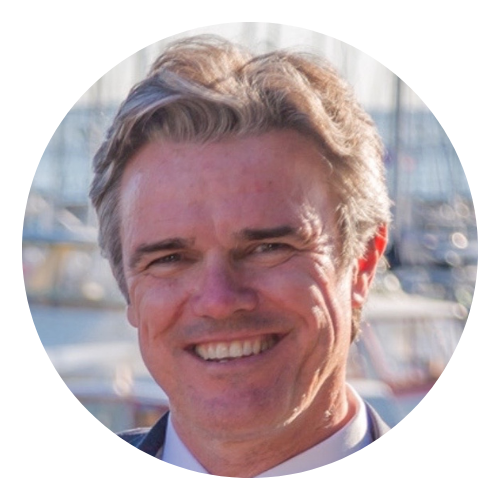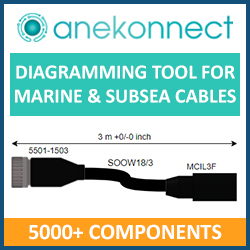Vice President of Education Candidate - Dr. S. Bradley Moran
 Dr. S. Bradley Moran is Dean of the College of Fisheries and Ocean Sciences and Professor of Oceanography at the University of Alaska Fairbanks. Prior to his appointment as Dean, he served as Acting Director of the Obama Administration's National Ocean Council, Assistant Director for Ocean Sciences in the White House Office of Science and Technology Policy, Program Director in the Chemical Oceanography Program at the National Science Foundation, and Professor of Oceanography in the Graduate School of Oceanography at the University of Rhode Island. His principal research focuses on the application of uranium-series and artificial radionuclides as tracers of marine geochemical processes and fostering economic development partnerships in energy and environmental research, technology, policy, and education. He recently completed eight years serving on the National Academies of Sciences, Engineering and Medicine Ocean Studies Board and four years as Vice President of the International Scientific Committee on Oceanic Research. He was Board Chair and Trustee of the former Consortium for Ocean Leadership. He currently serves on the Board of Directors of the Alaska Ocean Observing System, the Alaska Sea Life Center, the Pollock Conservation Cooperative Research Center, the UCAR Community Advocacy Advisory Board, the NOAA/UW CICOES Executive Advisory Board, and the North Pacific Research Board. Dr. S. Bradley Moran is Dean of the College of Fisheries and Ocean Sciences and Professor of Oceanography at the University of Alaska Fairbanks. Prior to his appointment as Dean, he served as Acting Director of the Obama Administration's National Ocean Council, Assistant Director for Ocean Sciences in the White House Office of Science and Technology Policy, Program Director in the Chemical Oceanography Program at the National Science Foundation, and Professor of Oceanography in the Graduate School of Oceanography at the University of Rhode Island. His principal research focuses on the application of uranium-series and artificial radionuclides as tracers of marine geochemical processes and fostering economic development partnerships in energy and environmental research, technology, policy, and education. He recently completed eight years serving on the National Academies of Sciences, Engineering and Medicine Ocean Studies Board and four years as Vice President of the International Scientific Committee on Oceanic Research. He was Board Chair and Trustee of the former Consortium for Ocean Leadership. He currently serves on the Board of Directors of the Alaska Ocean Observing System, the Alaska Sea Life Center, the Pollock Conservation Cooperative Research Center, the UCAR Community Advocacy Advisory Board, the NOAA/UW CICOES Executive Advisory Board, and the North Pacific Research Board.
Dr. Moran received a B.Sc. in chemistry from Concordia University, a Ph.D. in oceanography from Dalhousie University, and conducted his postdoctoral research at Woods Hole Oceanographic Institution.
Indicate one or two key goals that you hope to accomplish in this position over the next 3 years:
As VP of Education, a key goal would be to increase awareness and participation in MTS education programs, particularly in terms of recruiting the next generation of the marine technology workforce. In this regard, I have extensive experience working with academic institutions, laboratories and research institutes, including the development of innovative ocean education programs, such as URI's Blue MBA. More broadly, a secondary goal would be to help advance the overall mission of MTS as an active and engaged board member. Thank you for considering my nomination to the MTS board as VP of Education.
Discuss the qualities and experience you possess that make you a strong candidate for the position for which you are running:
As the Marine Technology Society (MTS) Vice President of Education, I would bring senior leadership experience in academic and government administration, and a record of success in ocean sciences research, education, and policy. My interest in this opportunity is two-fold. First, as a maritime nation, the United States oceans, coasts and Great Lakes are a vital part of our economy, health, and national security. And yet, our oceans and coasts are under increasing pressure from sea level rise, ocean acidification, warming ocean temperature, and resource extraction. This presents socioeconomic challenges and opportunities that underscore the need for responsible stewardship of the ocean environment and related community assets. Key to this is sustaining the public's investment and trust in ocean research, technology, education, observing, prediction and infrastructure. As VP of Education, I would bring extensive experience from academia and the federal government to bear on MTS's important work in support of the nation's marine scientific community. Second, I have over 30 years of senior administrative, technical and academic experience of progressive responsibility and authority, including leadership of diverse programs and initiatives that align with the mission and vision of MTS. This experience includes leading researchers, faculty and staff, major programs, and high-level science policy in the Executive Office of the President (White House), federal science administration (National Science Foundation, NSF), and university administration at the University of Alaska Fairbanks and the University of Rhode Island. I have built alliances and fostered collaborations to advance environmental science and policy initiatives with universities, federal and state agencies, the private sector, and non-profit organizations.
|



